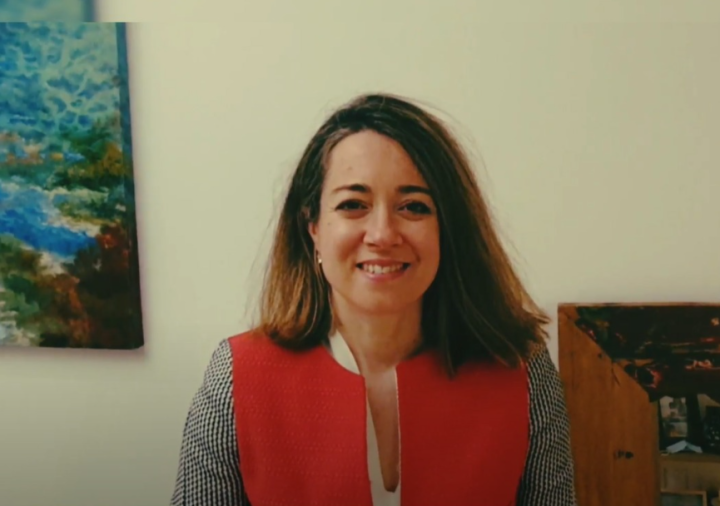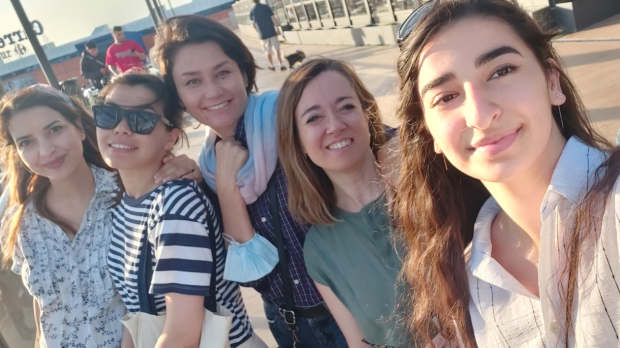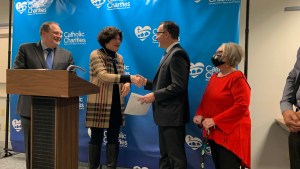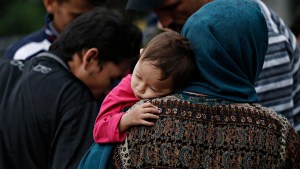It was August 20, 2021. The Taliban took Kabul after the general retreat of international troops. A lawyer named María José Rodriguez Beceda was in Madrid following the news. She got a WhatsApp notification. In one of the groups she belongs to, someone was asking for help for two Afghan sisters under threat.
Without hesitation, María José thought she had to help: “I contacted the Defense Staff through a friend. They saw that they were two young, single girls and included them in the evacuation. These were complex evacuations because the priority was diplomatic personnel and those who work with them, along with their families. But within this framework they found a way and evacuated them.”
She surely saved the lives of these two young women with her efforts from Madrid, despite the fact that, as she says, “I had never had anything to do with Afghanistan, but I was out of my mind about what was happening.”
Hundreds of petitions
Word spread. Several NGOs who saw the success of her efforts began to call on her for help. In the year that has passed, Maria José has managed to get 40 women and their families directly out of Afghanistan. And, through an association called “Netwomening” that she has set up with other friends and collaborators, she has helped another 80 families.
Today, she says, “I am overwhelmed. They’re trying to get sisters, sisters-in-law, and more relatives to come to Spain.” But she doesn’t stop. The last ones to arrive in Spain arrived just a few days ago. “I keep helping as best I can. Sometimes it’s by helping them to arrive from Afghanistan to Spanish embassies abroad, such as Islamabad, Tehran, Abu Dhabi, Istanbul or New Delhi.” And she keeps in touch with all those she helps, “with those who ask for help from Afghanistan and others who have been evacuated to other embassies. They relay their situation to us by WhatsApp. It is a challenge to stay on there every day.”

Persecuted women
Her main focus is on women. They have no rights in Afghanistan. Those who have held public office are actively persecuted. Their lives are in danger. As María José collaborates with the association “Más Democracia” (“More Democracy”) which – among other things – defends women’s rights, she receives many requests “from teachers, aid workers, lawyers, judges, prosecutors … There’s a profile that is highly persecuted by the Taliban: women defense lawyers, who defend, for example, underage girls who have been forced to marry, who deal with child custody issues, violence against women, divorces …”
Since the Taliban returned to power a year ago, they have taken advantage of the situation to act freely against these women and against all the people who have fought against terrorism. “There are personal persecutions, murders, tortures, and revenge,” María José says.
Gratitude from the evacuees
Evacuation processes are very complicated. Rarely is it a direct flight to Madrid or another place in Spain. Many have to go through Spanish embassies abroad and are not always treated well in those countries. María José keeps trying to find the best way out for them. And the Afghan women are surprised: “Many tell me, ‘I don’t understand how you do this if you don’t know us.’”
Christian motivation
This selfless help has a lot to do with her Catholic faith. She says, “As a Christian, I’m motivated to help without expecting anything in return, to help anyone I can, even if I don’t know them. And also (I’m motivated by) the feeling of indignation at the drama of people facing totally inhuman situations. It’s genocide in the 21st century.”
María José does not consider herself special; she believes that anyone can help from another country by helping with logistics, paperwork, and organization. Great results can be achieved without the need for knowledge, but with perseverance. “I hope that my example will help others to help,” she says. There are already six organizations doing the same things she does.
Association of godmothers
But what happens when the Afghans and their families arrive in Spain? María José doesn’t abandon them. She and a group of other women have created an association to complement the NGOs that are in charge of receiving these refugees. They want to be “like a friend. We help them with advice, we accompany them to run errands, to the doctor, to make an appointment …”
One year after the arrival of the Taliban, the number of women who want to leave Afghanistan is incalculable. Much remains to be done. Maria José asks us not to forget them.



